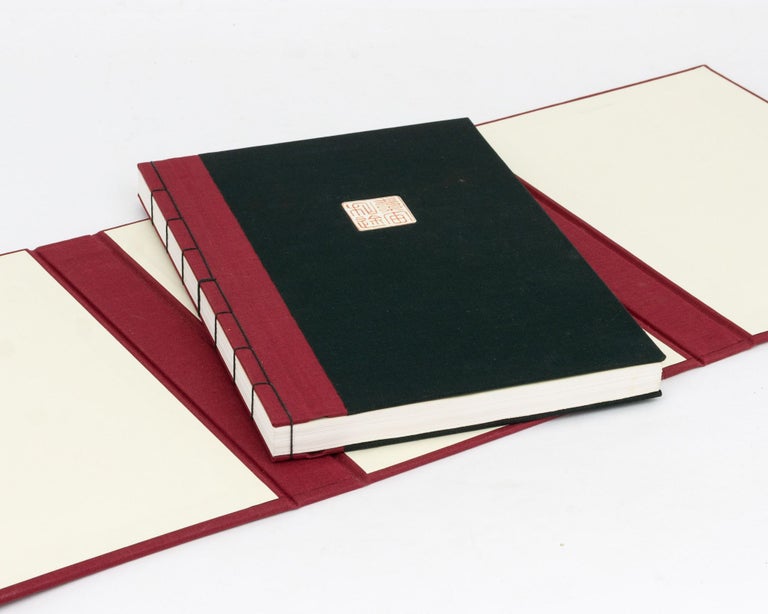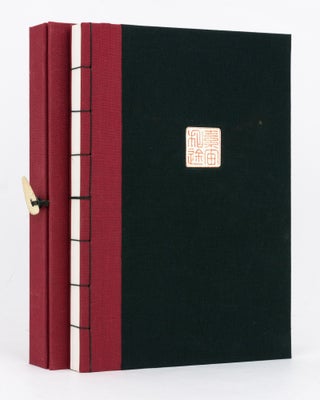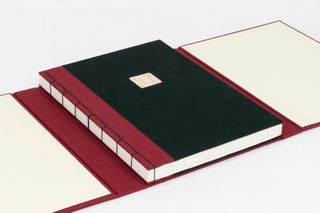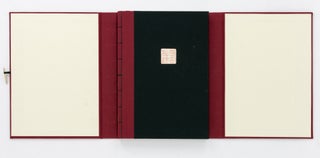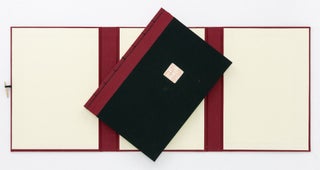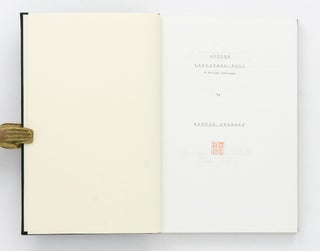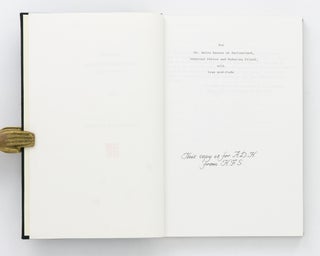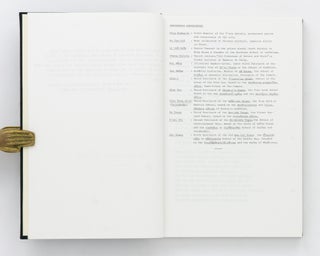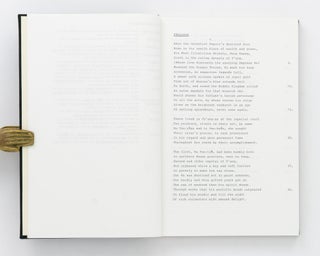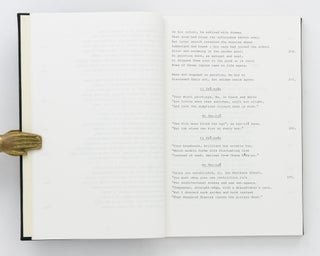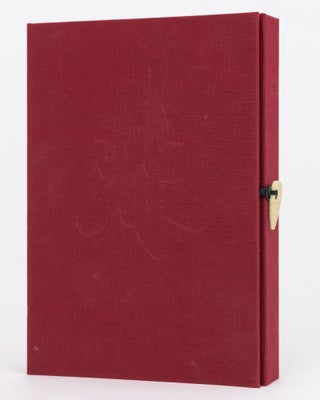Autumn Landscape-Roll. A Divine Panorama
[Kyoto, The Author, circa 1995].
Octavo, [155] leaves of reproduced typescript, printed rectos only; title with name seal in red; unpaginated, but the line numbers indicate that the work comprises 5356 lines of verse.
Stab-bound Japanese-style in quarter contrasting cloth, with a paper label on the front cover (the same seal as on the title page); one tiny mark to the front cover; edges a trifle foxed; essentially a fine copy in the original wrap-around case of blind-stamped cloth, secured with leather thongs and small wooden peg.
One of a small number of copies of this unpublished epic poem privately prepared by Harold Stewart as gifts for close friends and patrons. 'This copy is for A.D.H. from H.F.S.' is inscribed at the foot of the dedication leaf. The recipient was A.D. (Alec Derwent) Hope, fellow poet and an early appreciator of Stewart's work. The attractive and sympathetic binding, featuring Stewart's personal seal, was commissioned by the purchaser of the unbound sheets from the Canberra bookseller who received the bulk of Hope's collection. The poem tells the story of Wu Tao-tzu (Wu Daozi), a legendary painter of Tang dynasty China who painted a vast autumnal landscape. When asked by the Emperor to explain his work he clapped his hands, upon which the gates in the painting swung open and Wu walked into his art, never to be seen again. Stewart's personal notebook of the 1940s has the rather prophetic line: 'This is my idea of the Art of life: to make your biography the poem'. Harold Stewart is of course best known for perpetrating the Ern Malley hoax with James McAuley. In the latter part of his life, Stewart began increasingly to draw on east Asian sources for inspiration. 'In 1966 Stewart moved to Japan's cultural capital, Kyoto, where he stayed for the rest of his life ... Just before his death on 7 August 1995 at Kyoto, he completed his magnum opus, "Autumn Landscape Roll: A Divine Panorama". In 1995 the manuscript, together with other papers, was given to the National Library of Australia, Canberra. He has strong claims to be a great poet in his own right, as well as an important precursor of Australian interest in the Asian region' ('Australian Dictionary of Biography'). A.D. Hope was in on the Ern Malley hoax from the beginning. A few weeks after the Malley edition of 'Angry Penguins' went on sale in June 1944, Hope wrote to Clem Christesen, the editor of 'Meanjin': 'I suppose by now you've heard of the super-hoax played on Maxie Harris. Two pals of mine invented Ern Malley and led Maxie right up a tree ... I've been sitting on the bank for the last six months watching Maxie being played for a sucker ... It's the finest literary hoax since Bacon wrote Shakespeare'.
Item #126706
Sold

